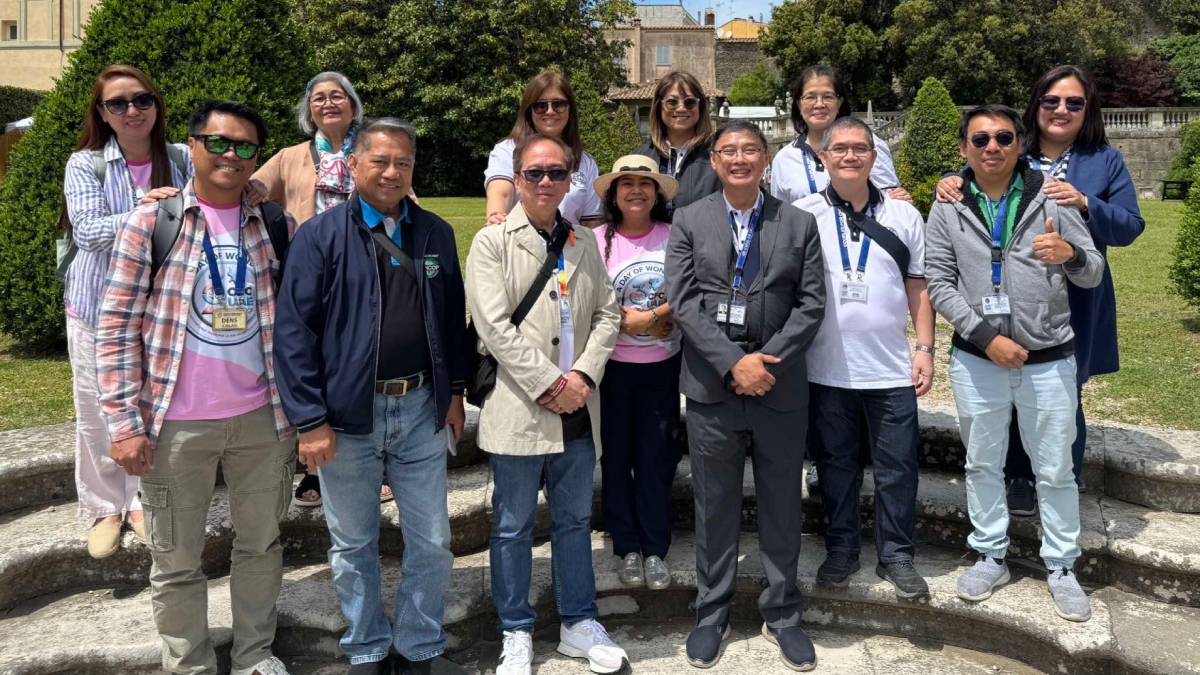Dear President Bongbong Marcos,
I just arrived in Dubai, UAE, our home for the past 24 years, after an 11-day personal trip to Italy and Switzerland with my wife.
We first attended the May 16 to 18 Global Conference of Couples for Christ in Rome where we interacted with fellow brothers and sisters from the Philippines and other countries as our Catholic community movement is present in more than 100 countries.
CFC’s global footprint is recognized by the Catholic Bishop Conference of the Philippines (CBPC) and the Vatican’s Pontifical Council for the Laity. In his homily on May 17, Cardinal Pablo Virgilio David of Caloocan and CBCP President said: “Your mission is not only to raise Christ-centered families. It is to be a light to the nations – to bring Christ to every place where families are wounded, broken, forgotten, and searching for meaning.”
The cardinal mentioned the global reputation of Filipinos being good caregivers. In an Italian government report, as of January 1, 2023, there were 155,533 Filipinos legally residing in the country which accounts for 4.2% of all third-country nationals. The figure places the Filipino community in eighth position among the main non-EU citizens in numerical terms. Many are employed in caregiving and domestic work and the majority are concentrated in northern Italy.
Based on the 2023 Survey on Overseas Filipinos of the Philippine Statistics Office, there are an estimated 2.16 million Filipinos working abroad, a majority are women who work as caregivers and domestic workers.
We then went to Florence and Milan in Italy, and finally to Interlaken and Zurich in Switzerland. In all these places, we met kababayans (compatriots) who are long-time residents, some even with dual passports and are second-generation overseas Filipinos. Just like their Middle East counterparts, Filipinos in both countries – and perhaps in the whole European continent – will continue to work and live wherever they are.
Let’s accept the socio-economic reality that working overseas provides more income and more comfort to family members back home. Your administration should therefore treat overseas Filipinos not just as clients of the Departments of Migrant Workers (DMW) and Foreign Affairs (DFA), but as ambassadors of the Philippines who could promote a positive image of the homeland as a tourist and investment destination.
I have been proposing in the past two years about promoting the homeland as an investment destination for Middle East conglomerates. It is a given that in every major company in the region there will always be a Filipino staff such as receptionist, personal assistant, or Finance, HR, and technical expert. These people can open the backdoor to get appointments with decision makers and business owners. Much more for caregivers and domestic workers who work closely with employers. They will be listened to.
All you need to do is to create a ‘Special Task Force to Promote the Philippines’ based in the UAE or Italy to cover the Europe, Middle East, and Africa (EMEA) region where over three million Filipinos work and reside.
This proposal can also unleash the potential of Overseas Filipino Workers to fulfill their destiny as co-architects of national development as indicated in the Vision Statement of the DMW.
You still have three years to create your legacy among overseas Filipinos.
Note: The columnist is a 24-year resident of Dubai and is currently working as Head of Corporate Communications of a global energy logistics company. He is a former Filipino Community Leader and is now active with a global Catholic movement promoting the renewal of Christian family life. He can be reached at artlosbanos@gmail.com






